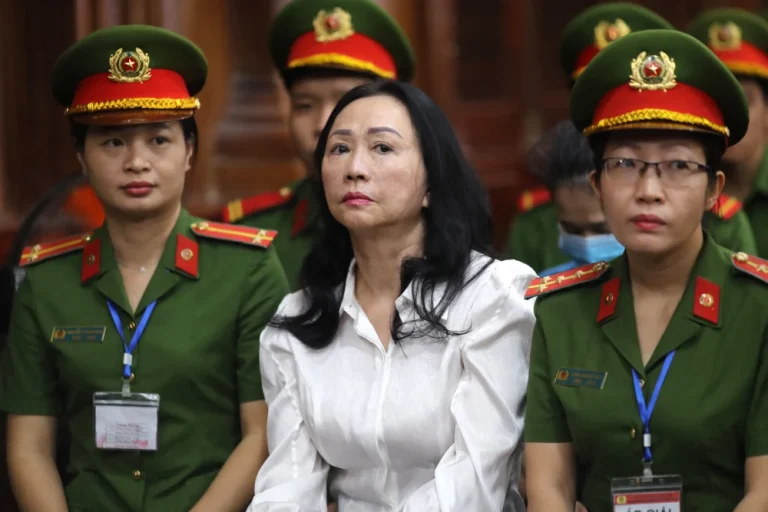HANOI, Vietnam — Starting next month, Vietnam will abolish the death penalty for eight criminal offenses, including embezzlement and attempts to overthrow the government, according to a statement from the National Assembly on Wednesday. The move will spare the life of real estate tycoon Truong My Lan, who was sentenced to death last year in a $12 billion fraud case.
The National Assembly, Vietnam’s legislative body, unanimously approved amendments to the Criminal Code that eliminate capital punishment for several crimes. These include damaging state property, producing counterfeit medicines, threatening peace or launching aggressive wars, espionage, and drug possession, according to the state-run Vietnam News Agency.
Under the revised law, the maximum penalty for these offenses will now be life imprisonment. Those already sentenced to death for these crimes, but not yet executed, will have their sentences automatically commuted to life in prison after the law takes effect on July 1.
This includes Lan, chairwoman of the Van Thinh Phat Holdings Group, who was convicted of embezzlement in one of the country’s largest financial scandals. Her legal team did not immediately comment on the development.
“According to the amendment of the Criminal Code, her sentence will automatically be reduced to life imprisonment,” said lawyer Ngo Anh Tuan, who is not involved in Lan’s case.
Capital punishment remains in place for 10 crimes in Vietnam, including murder, treason, terrorism, child sexual abuse, and drug trafficking. The exact number of inmates on death row is unknown, as such information is classified. Vietnam replaced firing squads with lethal injection as its sole method of execution in 2011.

